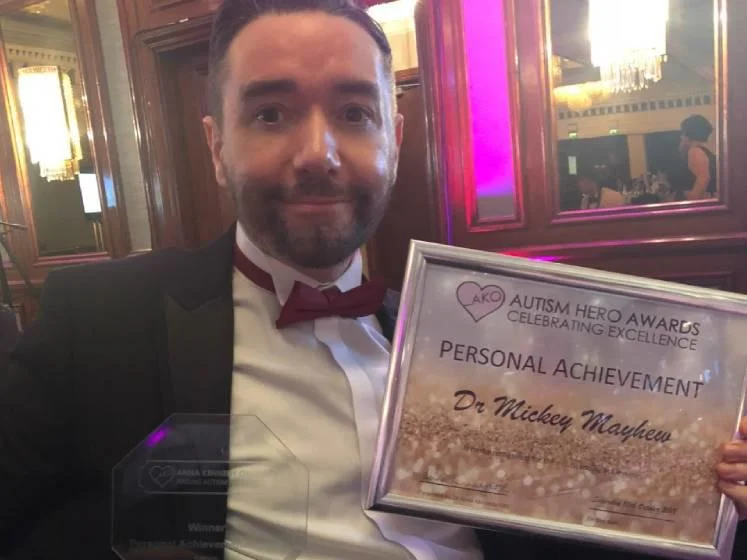A place in higher education for everyone

Mickey Mayhew (MSc Sociology 2007) is an academic, Tudor expert and novelist. Much of his life has been shaped by the fact that he has autism and grew up in a time when neurodiversity was not well understood. Excluded from school at the age of 12, Mickey has overcome many hurdles to get to where he is today. He talks to us about his life, the challenges he has faced, and why he is a passionate advocate for autism awareness.
What was life like for you growing up as a child?
Growing up with autism in the 1980s was a great challenge. I lived in rather a right-wing, conservative-leaning area and I spent a lot of time inadvertently offending people, because my autism meant that I had few social filters. My mind wasn’t wired to coping with maths either, so at school I fell behind and was branded a ‘troublemaker’ because of my inability to keep up. I believe the phrase ‘quietly disruptive’ was also bandied about.
You were excluded from school at the age of 12. How were you able to overcome exclusion and progress in your education?
It was rather a long and arduous process. I self-taught myself at home by reading cheap encyclopaedias. I also took an A Level at Morley College, just to stick my toe in the water and see if I had what it takes academically. I then did my undergraduate degree in Sociology at London South Bank University, although I had to repeat a year because I couldn’t process the data analysis modules.
By the time I got to LSE, I had mastered the concepts, although the data analysis modules there were still a bit of a struggle. Both universities were very forward in offering me assistance with my autism — at LSE I even had a one-to-one helper in the library!
What led you to study at LSE?
I thought it would be quite the achievement for someone so lacking academically, and that it might inspire other people with disabilities to aspire to get a place here for themselves. It was as much about setting an example as it was about bettering myself.
What inspired you to go into academia as your career?
I had no choice really. When you are excluded from school aged just 12, a reclamation of those lost years is essential. There was that nagging need to silence the voices of those teachers and pupils who had branded me ‘backward’. I didn’t get my autism diagnosis until I was 16, and back in the 1980s people tended to be less than understanding of difference.
What led you to write your autobiography Mickeypedia, and what projects do you have planned for the future?
I wrote Mickeypedia with the intention of raising money for the Anna Kennedy Online charity, and also to inspire others with autism who may have suffered a break in their education.
I’m currently working on the second of two books concerning the Tudors and Mary Queen of Scots respectively. My first two books on the subjects were both for The History Press, and they did rather well.
Much of your work involves autism awareness and advocacy. What is the message you would most like to communicate to the world?
If people could show a little empathy and understanding, life would be so much better for everyone. That autistic person you are sniggering at today, well, a few years down the road someone might be doing that to your own autistic son. People need to try and put themselves in other people’s shoes, even if just for a moment
What are your fondest memories of your time at LSE and how has your time at the School influenced your life?
My fondest memories are the various dissertation tutorials I took part in with my teacher Suki Ali during my second year. Otherwise, LSE has influenced my life by showing me that there is a place in the higher education for everyone – even for those who started out with nothing – all it takes is a little grit and determination. You only get one life after all, and it goes by just like that.
April 2021